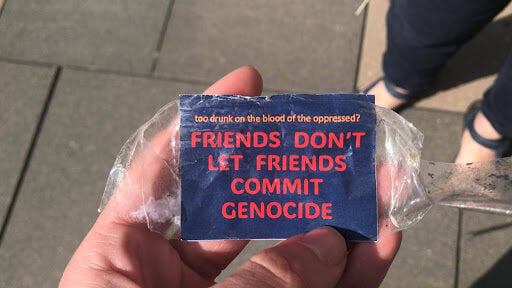
The recent surge in technological usage has created a place for hateful statements to be made without repercussion. Celebrities, politicians and other idolized social media personas have taken this opportunity to voice their controversial opinions through their large public platforms. However, these outlets are not the only source of hateful speech online. A main forum for such tropes is found in the comment sections of these celebrities’ posts, which are flooded with vicious arguments among users. This raises a bigger issue: that of the common person holding such spiteful beliefs, and having a platform for expounding upon them.
Globally, social media has exploded,with a rise in users by 9% annually. As social media’s users become younger and grow in numbers, the goal of these platforms shifts to reach out to that age demographic and maintain a connection to them. Online influencers, who rely on this shift, target kids and teens as future voters by using social media as a hub for news filtered by opinions.
Many instances of hate on social media occur following a specific nationally recognized current event that often involves a certain demographic. The recent national measles outbreak has established a general precedent of ridicule against the Jewish community. Pro-vax spokespeople have recognized Jews explicitly for their lack of vaccination in certain heavily populated Jewish areas.
Dax Shepard, respected comedic actor in the Hollywood industry, is a constant advocate for vaccinations. Along with his wife, Kristen Bell, Shepard participates in pro-vax promotions through social media and advertisements. Recently, Shepard added the hashtag #measeltov to his pro-vax tweet, which carries a clear anti-Semitic undertone. This particular tweet was retweeted 8.9k times, mostly with the intention of making the hashtag go viral. With Shepard’s 1.07 million followers on Twitter, the hashtag is likely to spread. Additionally, its 75k likes and 2k comments thus far make it clear that Shepard’s fan base has been eating up the new trend.
This instance serves as a prime example of the anti-Semitism that exists on social media. Furthermore, the style in which this statement was publicized goes hand in hand with the Rep. Ilhan Omar scandal, when she tweeted anti-Semitic proclamations that went viral, or the John Cusack “follow the money” tweet, which drew criticism for its clear anti-Semitic message. These situations, along with many others, create a foundation for a new age of anti-Semitism: the attack from within social media. In contrast to physical hate acts against Jews—which are also on the rise by 48% since 2016, according to the ADL—social media hate acts are a constant and insidious threat. Hidden within the walls of the web, users feel free to express themselves in a way they would not do in person. Their bitter words heighten the previously existing hate and share this hate with the new generation of news readers. Although Facebook is in the process of attempting to censor this speech, its efforts may only scratch the surface of the issue for fear of backlash against stricter restrictions.
It is no secret that the average teenager cannot live without a cell phone. However, even with its many perks, constant technology use can be extremely dangerous. What has unfortunately become commonplace is that life is lived through a screen. Creating this as the norm places the broader world fully within reach, opening new doors to modern socialization. Communicating with another is done through the phone or social media, which limits users by creating interactions through words only. These words can be used negatively, or may be misunderstood, resulting in backlash and online vitriol, such as what occurred following Shepard’s tweet.
As more current events in the Jewish world have become secular news, there appears to be room for so-called comical reactions that create offensive situations. At first glance, Shepard’s response to measles in Jewish communities may seem comedic, but it creates opportunities for fans and followers to take the jokes too far, entering the realm of anti-Semitism.
With social media used more and more frequently as the communications medium of choice, it has become clear that social media influencers view themselves as safe, hidden behind a website and screen. At times a post with no bigoted intention may result in a firestorm of hate-filled comments, all safely protected by the anonymity that the internet provides. With this new manner of (im)personal interactions, anti-Semitism and other forms of hate speech are finding growing support. As times have changed, so have the opportunities and resources to disseminate messages of hate.
By Hannah Kirsch
Hannah Kirsch is a rising senior at Rae Kushner Yeshiva High School in Livingston and a summer intern at The Jewish Link.












